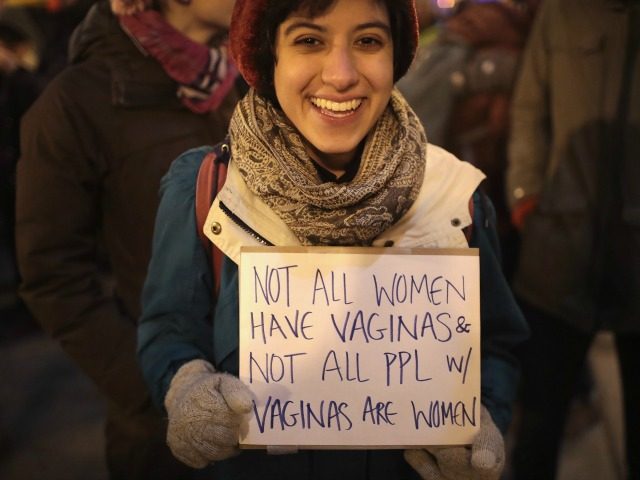A feminist philosophy professor has been pilloried by an outraged academy for suggesting that transgender rights are not substantially different from transracial rights, and if one can choose one’s gender, the same should apply for choosing race.
Although Prof. Rebecca Tuvel’s commonsense arguments are not new, they have elicited particular opprobrium because she represents the progressive academy and dared to publish them in Hypatia: A Journal of Feminist Philosophy.
In her article, titled “In Defense of Transracialism,” Tuvel notes that choosing one’s racial identity is no more difficult than choosing sexual identity, since both involve putting one’s subjective opinion of oneself ahead of objective biological realities.
“Considerations that support transgenderism seem to apply equally to transracialism,” and therefore society “should also accept transracial individuals’ decisions to change races,” she argued.
In response, the academic establishment rose up in collective histrionics, with more than 500 professors signing an open letter denouncing Tuvel’s paper, asserting that it “painfully reflects a lack of engagement beyond white and cisgender privilege.”
In an odd request for academic censorship, the letter demands that the journal retract Tuvel’s article, since “its continued availability causes further harm,” while accusing the journal of “a failure in the review process.”
The author of the open letter, Shannon Winnubst, chair of the department of women’s, gender, and sexuality studies at Ohio State University, later insisted that the article’s publication “signals an arrogant disregard for the broad, well-established, interdisciplinary scholarly fields of both critical race theory and trans studies.”
In other words, how dare a “junior scholar” break ranks, questioning the accepted conclusions of the reigning academic establishment? Such independent philosophical thinking would seem to show a lack of appropriate deference to the self-anointed priests of academic orthodoxy.
While scholars publicly seethed in righteous indignation, privately some have come forward to defend Tuvel’s work, albeit timidly.
One scholar privately admitted that Tuvel’s article is “a tight piece of philosophy” that clearly shows that the position that transgender is totally legitimate, while transracial is not “can only be justified using convoluted essentialist metaphysics.”
The Tuvel affair underscores both the biased close-mindedness of the academic establishment and the cognitive dissonance of supporters of transgenderism. A willingness to believe that people can simply define their own biological identity by an act of sheer will flies in the face of objective fact.
A recent video featuring conversations with a number of “millennial” college students illustrates people’s readiness to accommodate others beliefs about themselves. Watch below:
Last year, Joseph Backholm, the director of Washington’s Family Policy Institute, interviewed a number of millennial students, to see just how far they were willing to concede that people can choose to redefine themselves.
Beginning with the transgender question, Backholm moved on to questions of race (“If I told you that I was Chinese, what would your response be?”), and ending with height (“If I said that I am six feet five inches, what would you say?”) The majority of students interviewed were willing to allow a person to self-define as belonging to the opposite sex or as Chinese, but arbitrarily drew the line at height.
In her remarkably honest inquiry, Professor Tuvel noted that it is intellectually dishonest to allow subjective self-definition in one sector of biology without similarly allowing it in every area.
And this is what the academy, steeped in political and cultural bias, refuses to accept.
Follow Thomas D. Williams on Twitter Follow @tdwilliamsrome

COMMENTS
Please let us know if you're having issues with commenting.